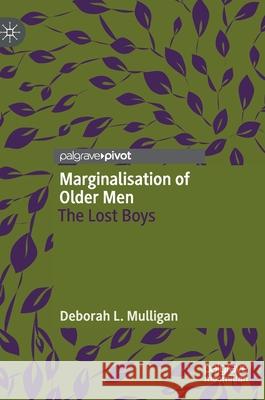Marginalisation of Older Men: The Lost Boys » książka
topmenu
Marginalisation of Older Men: The Lost Boys
ISBN-13: 9789811580703 / Angielski / Twarda / 2020 / 122 str.
Marginalisation of Older Men: The Lost Boys
ISBN-13: 9789811580703 / Angielski / Twarda / 2020 / 122 str.
cena 201,24
(netto: 191,66 VAT: 5%)
Najniższa cena z 30 dni: 192,74
(netto: 191,66 VAT: 5%)
Najniższa cena z 30 dni: 192,74
Termin realizacji zamówienia:
ok. 16-18 dni roboczych.
ok. 16-18 dni roboczych.
Darmowa dostawa!
Kategorie:
Kategorie BISAC:
Wydawca:
Palgrave MacMillan
Język:
Angielski
ISBN-13:
9789811580703
Rok wydania:
2020
Wydanie:
2020
Ilość stron:
122
Waga:
0.32 kg
Wymiary:
21.01 x 14.81 x 0.97
Oprawa:
Twarda
Wolumenów:
01
Dodatkowe informacje:
Wydanie ilustrowane











